Related Research Articles
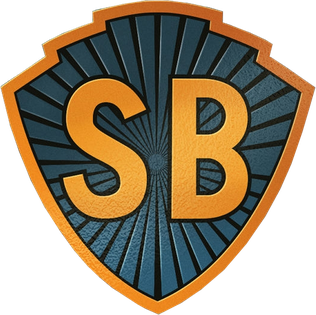
Shaw Brothers (HK) Ltd. was the largest film production company in Hong Kong, and operated from 1925 to 2011.
Chang Cheh was a Chinese filmmaker, screenwriter, lyricist and producer active in the 1960s, 1970s and 1980s. Chang Cheh directed more than 90 films in Greater China, the majority of them with the Shaw Brothers Studio in Hong Kong. Most of his films are action films, especially wuxia and kung fu films filled with violence.

Tommy Tam Fu-wing, known professionally by his stage name Tik Lung, is a Hong Kong actor, known for his numerous starring roles in a string of Shaw Brothers Studio's films, particularly The Blood Brothers, The Avenging Eagle, Clans of Intrigue, The Duel, The Sentimental Swordsman and its sequel, as well as the classic John Woo film A Better Tomorrow and its sequel.

One-Armed Swordsman is a 1967 Hong Kong wuxia film produced by the Shaw Brothers Studio. Directed by Chang Cheh, it was the first of the new style of wuxia films emphasizing male anti-heroes, violent swordplay and heavy bloodletting. It was the first Hong Kong film to make HK$1 million at the local box office, propelling its star Jimmy Wang to super stardom.
Hong Kong action cinema is the principal source of the Hong Kong film industry's global fame. Action films from Hong Kong have roots in Chinese and Hong Kong cultures including Chinese opera, storytelling and aesthetic traditions, which Hong Kong filmmakers combined with elements from Hollywood and Japanese cinema along with new action choreography and filmmaking techniques, to create a culturally distinctive form that went on to have wide transcultural appeal. In turn, Hollywood action films have been heavily influenced by Hong Kong genre conventions, from the 1970s onwards.
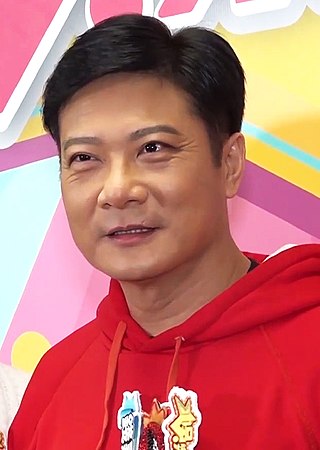
Chin Ka-lok, sometimes credited as Chin Kar-lok, is a Hong Kong actor, action choreographer, and television presenter.

Jimmy Wang Yu was a Hong Kong-Taiwanese martial artist, actor, film director, producer, and screenwriter. Initially a contract player for Shaw Brothers, he rose to fame for his starring role in One-Armed Swordsman (1967) and its sequels, and was one of the first major stars of martial arts and wuxia cinema. At the height of his fame in the 1970s, he was the highest-paid martial arts actor in the world. According to The New York Times, Wang was "the biggest star of Asian martial arts cinema until the emergence of Bruce Lee."
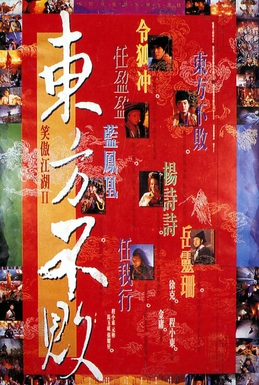
Swordsman II, also known as The Legend of the Swordsman, is a 1992 Hong Kong wuxia film very loosely adapted from Louis Cha's novel The Smiling, Proud Wanderer. It was the second part of a trilogy: preceded by The Swordsman (1990) and followed by The East Is Red (1993). Directed by Ching Siu-tung, Swordsman II starred Jet Li, Brigitte Lin, Rosamund Kwan and Michelle Reis in the leading roles. None of the original cast from the previous film return except Fennie Yuen.
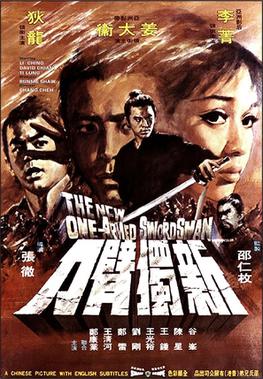
The New One-Armed Swordsman is a 1971 Hong Kong wuxia film directed by Chang Cheh and produced by the Shaw Brothers Studio, starring David Chiang. Chiang replaced Jimmy Wang, the star of the two preceding films in the series, The One-Armed Swordsman and Return of the One-Armed Swordsman.

Chor Yuen, born Cheung Po-kin, was a Hong Kong film director, screenwriter, and actor. Chor is credited with over 120 films as director, over 70 films as a writer and over 40 films as an actor.

The Wandering Swordsman is a 1970 Hong Kong wuxia film directed by Chang Cheh and produced by the Shaw Brothers Studio, starring David Chiang and Lily Li.

Griffin Yueh Feng was a Chinese film director and screenwriter who worked in the Cinema of Hong Kong. He worked at the Shaw Brothers Studio's for many years and directed nearly 90 films.
Lisa Chiao Chiao, often credited as Chiao Chiao, is a Taiwanese film actress best known for her work in Hong Kong cinema.
Lily Li is a Hong Kong film and television actress. She is best known for her films The Wandering Swordsman, Executioners from Shaolin, One Foot Crane and The Young Master, and television series The Bride with White Hair, Blood Debt, Beyond the Realm of Conscience and Demi-Gods and Semi-Devils.
Lau Kar-wing is a martial artist, Hong Kong martial arts film director, action choreographer and actor.
Tony Liu Tian-jue is a Hong Kong actor and martial artist. He is often credited by his Cantonese stage name Lau Wing. Liu is best known for starring in many Hong Kong martial arts films, especially in the 1970s and 1980s. He has also acted in some television series.

Return of the One-Armed Swordsman, also known as One-Armed Swordsman Return, is a 1969 Hong Kong wuxia film directed by Chang Cheh and produced by the Shaw Brothers Studio. The film is a sequel to the 1967 film One-Armed Swordsman, with Jimmy Wang and Lisa Chiao Chiao reprising their roles.

The East Is Red, is a 1993 Hong Kong wuxia film. The main character in the film is loosely based on Dongfang Bubai, a character in Louis Cha's novel The Smiling, Proud Wanderer. The film was produced by Tsui Hark, was co-directed by Ching Siu-tung and Raymond Lee and starred Brigitte Lin, Joey Wong and Yu Rongguang. The film is regarded as a sequel to The Swordsman and Swordsman II.
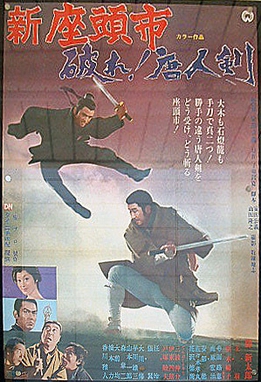
Zatoichi and the One-Armed Swordsman, also known as Zatoichi Meets the One-Armed Swordsman and The Blind Swordsman Meets His Equal, is a 1971 Japanese-Hong Kong chambara / wuxia crossover by Japanese film director Kimiyoshi Yasuda and Chinese film director Hsu Tseng Hung. The film stars Shintaro Katsu as the blind swordsman Zatoichi and Jimmy Wang Yu as the "One-Armed Swordsman" Wang Kang. It is a crossover of the long-running Zatoichi series and the One-Armed Swordsman film series.

Have Sword, Will Travel is a 1969 Hong Kong wuxia film directed by Chang Cheh and starring Ti Lung, David Chiang and Lee Ching.
References
- ↑ "Cliff Lok". Hong Kong Movie DataBase . Retrieved 4 August 2011.